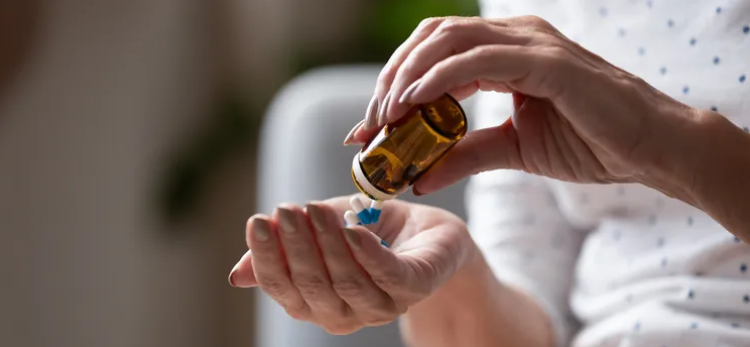Every year millions of Australians suffer adverse medicine events as a result of not taking medications as prescribed. This is a big issue, but even more so during Christmas holidays when routines can change and financial pressures can increase for some customers.
Issues such as cost, side-effects, not understanding why the medication is necessary and being overwhelmed by too many medications are common factors that contribute to people not taking their medications correctly. But during the holidays, they are joined by two other causes.
First, the distraction and abundance of social events disrupt one’s regular routine, making it hard to remember whether medication has been taken. Second, some consciously choose not to fill their prescriptions during Christmas holidays so that they’ll have extra money to buy gifts for loved ones.
“The festive season and holidays can be a time when it is easy to lose track of normal daily schedules. Everyone wants to relax and have a good time but things don’t always go according to plan, especially when daily medication routines are interrupted,” says Webstercare founder and managing director Gerard Stevens AM.
“That’s why it’s important to plan ahead and take steps to ensure that medication problems don’t get in the way of enjoying this important time of the year.”
Simple steps to stay medication safe
“Safe medications make safe holidays. Hopefully many of us will be able to get away this year and catch up with family and friends for Christmas and the New Year. But what happens if you run out of your medications or lose them?
“It can be critical that you don’t miss a dose. Being able to explain exactly what you take and what dose is another consideration. It’s important to be prepared,” he warned.
Mr Stevens said a few simple steps can help minimise the chance of medication misadventure while people are away from home, giving them and their family peace of mind:
1. Ask your pharmacist for a Webster-pak for the duration of your holiday
A Webster-pak will ensure all medications prescribed are available for the duration of the trip and act as a reminder to take the recommended doses.
The most widely used pack in Australia is the Webster-pak, which was invented by Mr Stevens more than 35 years ago.
2. Carry a PocketProfile Medicines List in a wallet or purse
People can find it difficult to remember and explain exactly what medications and doses they take, especially with multiple medications.
“Around one in five people aged 70 or older are on four or more medications, which they truly need. It can be difficult to remember all of the names and correct dosages,” warned Mr Stevens. “So, having an up-to-date list can be very useful.”
One great solution is Webstercare’s PocketProfile Medicines List, which can simply be printed by your pharmacist. It contains a person’s entire medication profile, including images of medications, and neatly folds down to the size of a credit card, so it’s easy to keep in your purse or wallet. Whenever a medication changes, your pharmacist will issue you with an updated PocketProfile.
“In an age where things are increasingly digital, users of the PocketProfile don’t need the latest gadgets, apps and electronic devices – it won’t run out of charge and it won’t shut down,” said Mr Stevens.
The PocketProfile also contains the person’s home pharmacy and phone number, enabling a pharmacist at a holiday destination to simply ring the home pharmacy to confirm the medications that were prescribed, before issuing emergency replacements to last the remainder of the holiday.
“It is particularly helpful in emergency situations. Medical staff can immediately see a patient’s medications and any other medical concerns, including ‘in case of emergency’ contact details,” said Mr Stevens.
3. Speak to your pharmacist before going away
“It is a good practice to check in with your pharmacist before going away; they are a wealth of knowledge and information,” says Mr Stevens. “It is also an opportunity to speak to them about the Pharmacist Shared Medicines List, a consolidated list of medicines prepared by a pharmacist and uploaded to a patient’s My Health Record. It can help to reduce medication-related problems, specifically those experienced by older Australians.
“You can also purchase other items, such as moisturiser or a bottle of sunscreen, before you hit the beach!” finished Mr Stevens.
What do you do to ensure you stay on top of your medication during the holiday season? Why not share your thoughts in the comments section below?
If you enjoy our content, don’t keep it to yourself. Share our free eNews with your friends and encourage them to sign up.

